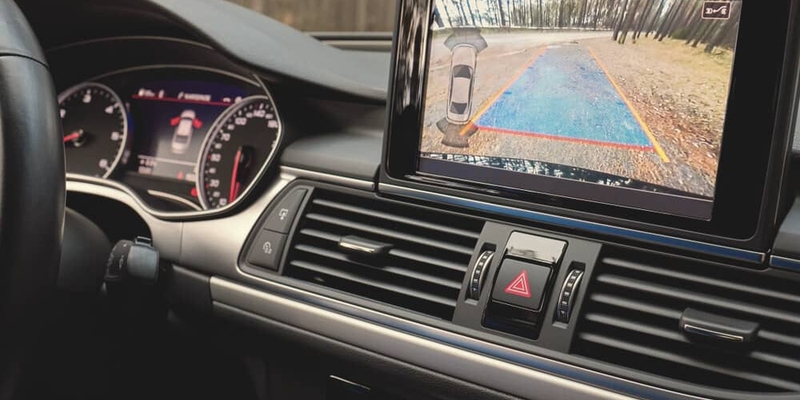
If you are not redirected within 30 seconds, please click here to continue.
Samedi: 10h – 16h HAE

If you are not redirected within 30 seconds, please click here to continue.
If you are not redirected within 30 seconds, please click here to continue.
Smart cars are putting automotive cybersecurity to the test

It’s almost a cliché to say that your car is a computer on wheels – today’s vehicles include processors, memory, storage, and networking to support all sorts of features and functions.
All these components are vulnerable to nefarious threats. Just like a computer, your car is hackable. While automobile manufacturers are building vehicles with cybersecurity and customer safety in mind, you’re responsible for securing your smart car, just as you are for your computer or smartphone.
Given that these cybersecurity threats could lead to damage or theft of your vehicle, it could mean serious implications for your auto insurance coverage.
Your car is connected to everything
Automotive cybersecurity is even more complicated than securing your computer or phone.
For one, a typical vehicle today is full of electronic control units (ECUs) to support functions such as the advanced driver-assistance system (ADAs), including sensors and cameras in the car. These features detect objects nearby, help you with a tight parking spot, or navigate roads. Additionally, the typical dashboard is a cluster of digital functions that rely on computer memory and data storage technologies, as well as wireless connectivity.
Because the car is connected, there are many different points of entry, like Wi-Fi, Bluetooth, SD card and USB slots, and linked smartphone apps, among others. Each of these points of entry are vulnerable to threat actors that can enter and wreak havoc.
In fact, there have been some high-profile examples of what happens when a car gets hacked. As far back as 2015, two security researchers were able to remotely kill the throttle to a Jeep, while in 2016, hackers were able to take control of Tesla’s Model S systems.
Hackers can take many different routes
There are many ways your connected car can be hacked, but there are also steps you can take beyond the security features included by the car manufacturer.
- Telematics navigation and tracking systems: Gone are the days where you need to buy a separate GPS for your car. Those features are now built-in and provide all sorts of information, including weather updates. These connected systems are susceptible to hacking. It’s important that you apply any regular updates sent out by the car manufacturer automatically, as they include security patches to address any vulnerabilities. Additionally, keep on top of any advisories sent out by your vehicle manufacturer, including recalls and recommended steps to safeguard against potential security threats.
- Smartphone apps and software: You should only install apps and tools approved by the car manufacturer. Your smartphone is a gateway to your connected vehicle, which means how well you secure your phone will impact your car.
- Secure all Wi-Fi: If your car is connected to your home Wi-Fi, it’s accessible by anyone accessing that network. Your vehicle should ideally have its own Wi-Fi password, separate from the one at your home.
- USB ports and other card slots: These are a common port of entry into essential automotive systems, enabling malicious actors to install malware, control automotive systems, and steal personal data (like bank authentication pins).
- Key fobs: A key fob is a standard feature on many vehicles, but the convenience of operating your car from a distance creates a vulnerability that can be exploited. Hacking via a key fob is quite common because the encrypted radio signal can be replicated. To avoid hacking, switch off your key fob and store it in a shielded location. You can now buy wallets and purses that blocks radio signals.
Given the complexity of vehicles today, the owner can’t be expected to be responsible for every aspect of protecting it from threats. The automobile makers themselves are dedicating a lot of time and effort to incorporating security into every car they make – not just at the software level, but with the hardware too. There’s also a move to consolidate the many systems so there’s fewer ECUs and entry points that could potentially be compromised.
But just like a computer or a smartphone, security features that come with the car have their limits, so user behaviour is just as critical to securing any car. From an insurance perspective, your action or inaction can be used to determine liability.
You’re at the wheel
Automotive cybersecurity in the insurance industry is still relatively new. Like self driving cars, it’s unclear how these connected systems will influence premiums over the long term. But just like a collision, what your insurance will pay out and the impact on your premium will boil down to liability.
Therefore, it’s incumbent on you to take all necessary precautions and pick up the security baton where the automobile manufacturer’s capabilities end.
If you’re concerned about how cybersecurity threats and incidents will affect your auto insurance premium in the future, seek out an insurance provider that factors connected car capabilities and cybersecurity vulnerabilities into their risk assessments and coverage offerings.
Don't waste time calling around for auto insurance
Use RATESDOTCA to shop around, and compare multiple quotes at the same time.
Get money-saving tips in your inbox.
Stay on top of personal finance tips from our money experts!









